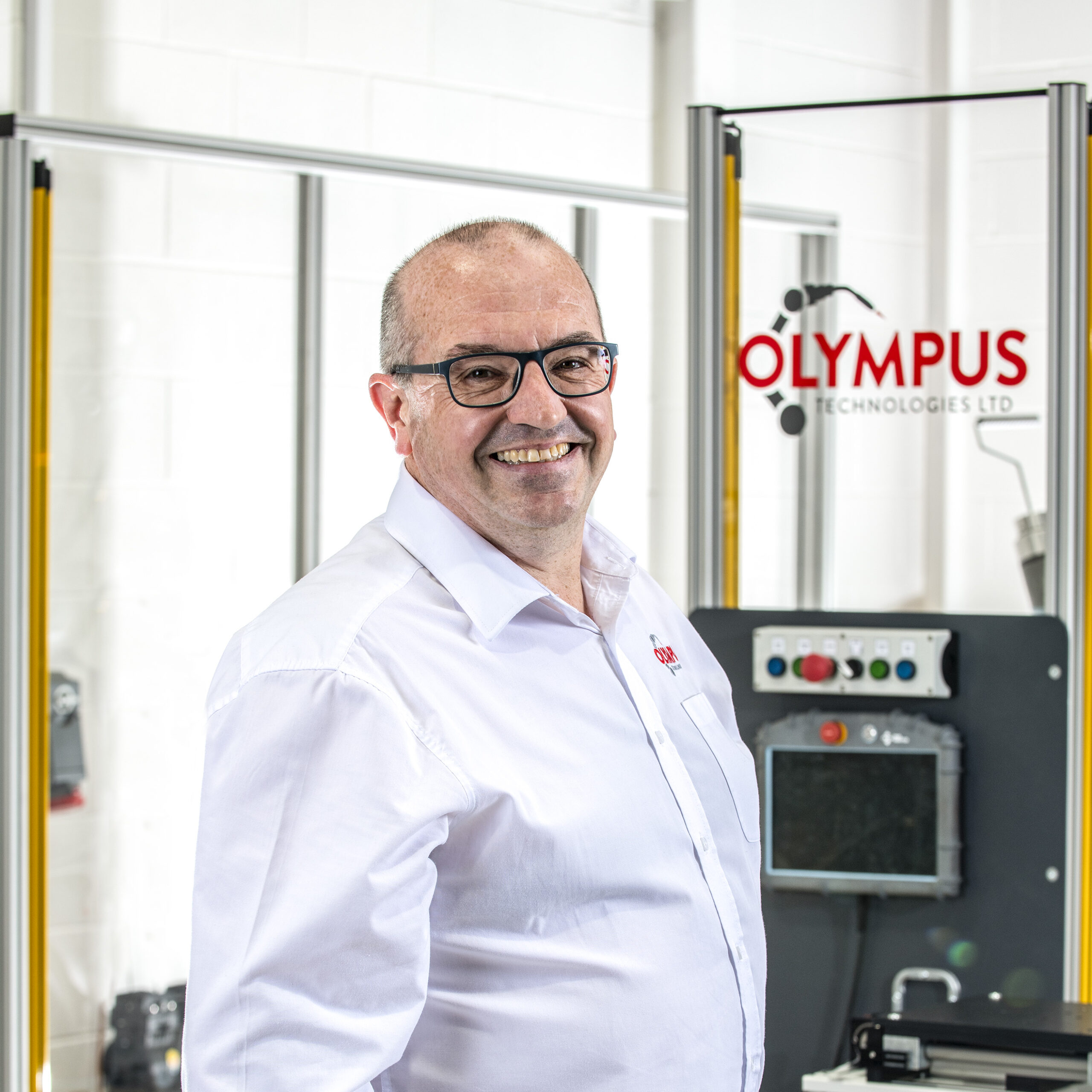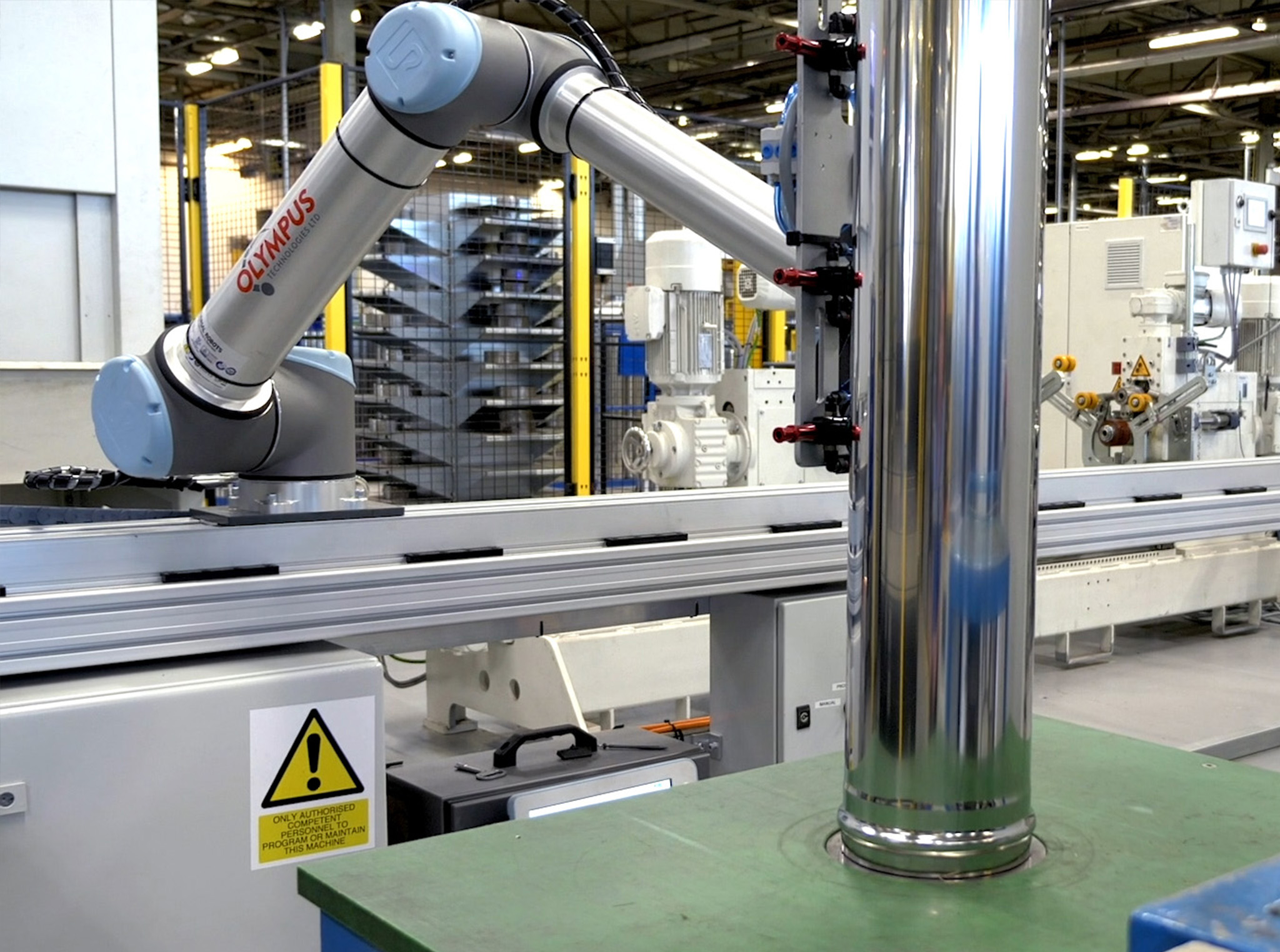What Is Cobot Palletising?
Cobot palletising uses collaborative robots, also known as cobots, to handle repetitive tasks like stacking, sorting, and loading at the end of a production line. Unlike traditional industrial robots, which often require heavy infrastructure and safety cages, robotic arms from Universal Robots are designed to work safely alongside human workers.
This distinction is crucial. Cobots don’t demand a full production overhaul. Instead, they offer flexible integration into existing workflows, making them especially attractive to companies looking to automate quickly. Industries such as food and drink, pharmaceuticals, and logistics increasingly turn to cobot systems to improve efficiency, maintain consistency, and keep up with rising demand.
In short, cobot palletising lets businesses automate repetitive tasks while keeping their operations nimble and scalable.
Why UR Cobot Palletising Helps Cut Labour Costs
Rising labour costs are a pressing concern for many managers. From covering overtime and sick leave to dealing with injuries from physical strain, manual palletising adds up to more than just wages, it hits productivity, increases downtime, and affects your bottom line.
Universal Robots cobots can help cut those costs significantly. Here’s how:
- They operate consistently across multiple shifts with minimal maintenance costs
- They reduce reliance on agency labour or short-term cover
- They minimise the risk of injury-related absences, cutting other expenses
A 2023 study by the International Federation of Robotics found that cobot adoption can improve operational output by up to 30% while lowering direct labour costs by 20–25% within the first year. That’s a compelling point for any company evaluating the cost vs. value of automation.
Many businesses see a full ROI in less than 12 months. And over time, the cost savings typically increase, especially as human workers are redeployed to higher-value tasks.
Core Benefits of Robotic Palletising
Let’s explore the key ways UR cobots deliver tangible benefits beyond just cost:
Improved Efficiency Without Burnout
Cobots don’t need breaks or time off. They perform with increased efficiency, even during peak shifts, helping improve productivity and reduce reliance on manual schedules. Unlike human workers, cobots won’t slow down at the end of a long day.
Better Safety, Happier Teams
Manually lifting heavy loads over time can lead to repetitive strain injuries. By automating these physically demanding tasks, cobots create a safer workplace. This not only protects your workforce, but also contributes to lower employee turnover and improved morale.
Smarter Data for Leaner Operations
UR systems offer real-time monitoring tools that provide insights into output, cycle times, and machine status. These performance measures allow teams to evaluate efficiency, reduce downtime, and plan preventive maintenance, helping you optimise based on actual data, not assumptions.
ROI Considerations: What to Expect and When
When making an investment, understanding when and how it pays off is essential. The initial investment in UR cobot palletising typically includes the robotic arm, gripper, and any necessary integration into your existing equipment.
Despite the upfront capital outlay, ongoing maintenance costs remain low compared to rising labour expenses. More importantly, the system delivers value rapidly.
Example ROI Breakdown
Let’s look at a typical side-by-side comparison:
| Cost Category | Manual Labour | UR Cobot Palletising |
|---|---|---|
| Labour per shift | High | Low |
| Overtime costs | Frequent | Rare |
| Annual injuries | Common | Minimal |
| Training costs | Recurring | One-off |
| Downtime | Regular | Low |
| Year 1 Total Cost | Increasing | Decreasing over time |
This kind of comparison highlights the importance of assessing different investments not just by their initial investment, but by their current value and long-term return.
Financial Framing: Net Present vs Net Profit
When analysing any automation upgrade, decision-makers often compare net present value (NPV) and net profit. NPV looks at the expected value of future cash flows relative to the cost today—a more accurate gauge when comparing projects with varying timelines.
In this context, UR cobot palletising provides a compelling NPV case. The fast payback period, combined with sustained increased productivity, helps tip the scale when compared to other capital assets or stocks.
How UR Cobot Palletising Works
At the core of every UR system is a highly adaptable robotic arm equipped with advanced sensors and safety protocols. These cobots don’t require a programming degree to operate—they’re intuitive, with touchscreen software and drag-and-drop interfaces.
They’re also compatible with most existing systems: conveyors, wrappers, and even legacy machinery. This allows you to automate the end-of-line process without scrapping your existing setup. Whether you're stacking cartons or handling crates, UR cobots adjust easily to different payloads, tasks, and patterns.
Getting Started: From Planning to Payback
1. Assess Your Site
Start by identifying repetitive tasks or problem areas where labour costs are rising but output is stagnant. Match these to your performance measures and identify where automation would deliver the most extra financial value.
2. Choose the Right System
Work with an experienced automation partner who understands your equipment, floor space, and production line requirements. This helps align your investment with real-world needs and avoids over-engineering the solution.
3. Deploy and Train
While UR cobots are easy to use, proper onboarding matters. A short training period ensures your team is confident and your cobots operate at peak performance from the start.
Why UR Cobot Palletising Is a Smarter Long-Term Move
Investing in cobot palletising doesn’t just help you cut labour costs. It helps future-proof your operations. As your product mix, customer demand, or packaging evolves, the same cobot can be redeployed without a full redesign.
You'll also gain:
- A competitive edge from faster cycle times and fewer errors
- Reduced energy usage and packaging waste for better sustainability
- Access to government automation grants or capital allowances (especially in the UK)
These factors, combined with rising efficiency, make cobots an ideal solution when evaluating automation projects for the future.
Final Thoughts
UR cobot palletising is about more than just saving money. It empowers your workforce, enhances safety, and turns repetitive jobs into smart, automated processes - all while delivering measurable returns.
For businesses focused on long-term value, it’s an investment that pays.
FAQs
How does UR cobot palletising reduce labour costs?
By automating repetitive tasks, cobots minimise the need for human workers in physically demanding roles. This leads to fewer injuries, less overtime, and lower overall labour costs over time.
What’s the average ROI period for UR cobot systems?
Most businesses see a return on investment (ROI) in under 12 months. The exact period depends on your current labour spend, shift patterns, and how quickly the system is deployed.
Can cobots integrate with existing equipment?
Yes. UR cobots are designed for flexible integration, making it easy to add them to your current systems without a full line rebuild. This lowers your initial investment and shortens the rollout timeline.
How do I evaluate if cobot palletising is right for my company?
Start by looking at performance measures like output per shift, downtime, and total expenses. Comparing your current setup to the expected gains from cobots helps determine whether the investment offers strong value and dividends.














